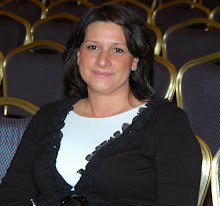 'Evaluating complementary medicine: methodological challenges of randomised controlled trials'
'Evaluating complementary medicine: methodological challenges of randomised controlled trials'Article published in the British Medical Journal
VOLUME 325 12 OCTOBER 2002
Please find link to complete article in PDF file:
http://www.bmj.com/cgi/reprint/325/7368/832.pdf
"Summary points
Complementary medicine (Conductive Pedagogy) has a different philosophy from conventional medicine, presenting challenges to research methodology
Rigorous evaluation of complementary medicine (Conductive Pedagogy)
could provide much needed evidence of its effectiveness
Good design of randomised controlled trials will avoid invalid results and misrepresentation of the holistic essence of complementary medicine (Conductive Pedagogy)
Practitioners need to be recognised as a component in or contributor to complementary treatment
Both specific and nonspecific outcome measures with long follow up are needed to adequately encompass the essence of complementary
medicine (Conductive Pedagogy)"
Can we use the above summery points and replace 'complementary medicine' with Conductive Pedagogy?
Is Conductive Pedagogy (CE) complementary or stands on its own right as a total, integrated educational, rehabilitation system?
Do we have a clear answer?
Mhh... something to think about.
CE Related Research Links:
'Knol by Andrew Sutton'
http://knol.google.com/k/andrew-sutton/ce-related-research/2tv7fpph4s1dn/6#
'CONDUCTIVE WORLD' written and published by Andrew Sutton
http://www.conductive-world.info/search/label/Research















No comments:
Post a Comment